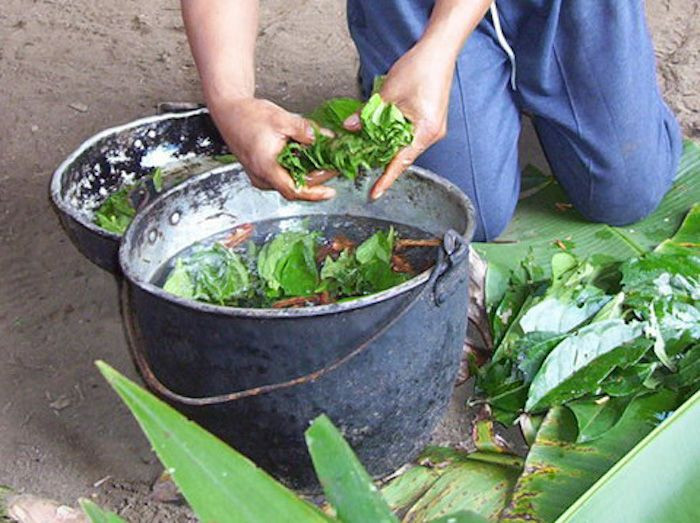Depressed Patients Find Relief With Hallucinogenic Ayahuasca

A growing body of research is beginning to shed light on a promising new source of psychiatric treatment: psychedelic drugs. And now, a new study has found some evidence the sacramental brew ayahuasca may help patients with depression who’ve had no success with common antidepressants.
Researchers from the University of Sao Paulo, Brazil, found in a small study of only six patients with major depressive disorder (MDD) that drinking ayahuasca could reduce depressive scores by 82 percent. The hallucinogenic eased symptoms within hours of taking the drug, and three weeks later, their feelings of wellbeing persisted. Though small, the study shows ayahuasca may be a promising alternative to antidepressants, which don’t work in some patients or come with unwanted side effects.
Ayahuasca is drink brewed from the vine Banisteriopsis caapi, which is also called the ayahuasca vine, as well as the shrub Psychotria viridis, among other psychedelic plants. While it’s been used for decades among indigenous South American tribes, who’ve used it for rituals and medicinal purposes, it’s also attracted a swelling tourism industry comprised of people seeking its therapeutic and spiritual benefits.
The drug causes euphoria and intense visual and auditory hallucinations. It’s said to open one’s mind to new insights, deeper realities, and spiritual connections — some even say you can meet God through it. It does this primarily through the psychedelic compound DMT, which affects the brain’s levels of the neurotransmitter serotonin, a chemical with roles in wellbeing and happiness. Incidentally, this is also the brain chemical targeted by antidepressant drugs.
All six patients, however, were diagnosed with MDD and were found unresponsive to at least one type of antidepressant. Each of them took ayahuasca for the first time in a mild dose, and sat in a dimly lit room on a recliner chair for the duration of their four-hour session. During this time, they were interviewed for depressive symptoms.
The researchers found that aside from vomiting (a common side effect of ayahuasca), the drug was tolerated well. After only a day, the participants’ depression scores lowered, suggesting the drug is not only effective, but faster-acting than antidepressants, which can take up to three weeks to start working normally.
“It is proof of concept of what so many ritual ayahuasca users already know: ayahuasca can help one feel extra well, not just during the experience, but for up to days or weeks after,” Brian Anderson, a psychiatrist at the University of California, San Francisco, told Nature. He wasn’t involved in the study. “The relationship between ayahuasca’s psychedelic effects and its therapeutic effects needs to be empirically studied.”
It’s been notoriously difficult for researchers to obtain funding for psychedelic drug studies, as DMT, psilocybin, and LSD are all considered schedule I drugs under the U.S. Controlled Substances Act — the strictest drug class, deeming them as having “no currently accepted medical use in treatment.” With these restrictions, many people seeking alternative therapies for their conditions (which aren’t limited to depression) have sought ayahuasca in South American and European countries. However, there are risks associated with taking the drugs, especially as the ayahuasca tourism industry has grown and the people administering the drugs have become increasingly untrained and dishonest.
Although the study was small and failed to include a control group, it’s still a promising step toward finding new treatment options. If it’s administered in a controlled setting with a psychologist present, it may offer a respite from the feelings of hopelessness that accompany treatment-resistant depression.
Source: Osorio F, Sanches R, Macedo L. Antidepressant effects of a single dose of ayahuasca in patients with recurrent depression: a preliminary report. Revista Brasileira de Psiquiatria. 2015.



























